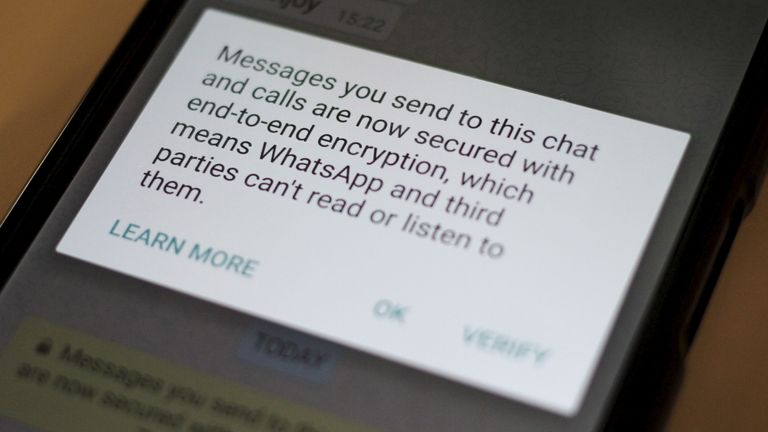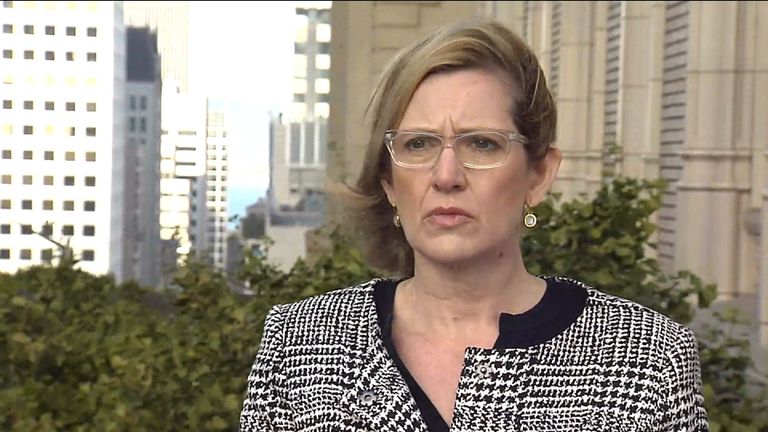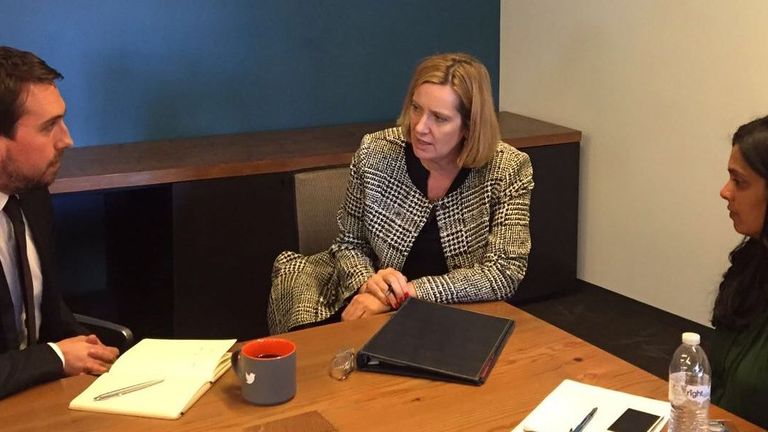I'm a real person and I think end-to-end encryption is good
Amber Rudd's plan to make end-to-end encryption available to authorities has no basis in reality, writes Tom Cheshire.
Wednesday 2 August 2017 11:35, UK
The refreshing thing about the recent encryption debate is how politicians cheerfully admit that their plans have no basis in reality.
Take Malcolm Turnbull, the Australian Prime Minister. Last month he proposed legislation that would force internet companies to remove end-to-end encryption, saying: "The laws of mathematics are very commendable, but the only law that applies in Australia is the law of Australia."
Mathematicians may disagree. The Home Secretary, Amber Rudd, does not.
Writing in the Telegraph, she acknowledges the argument that it's impossible for a system to be end-to-end encrypted and give authorities access to it. If they do get access, someone else, like a hacker, might too, that argument goes.
She writes: "That might be true in theory. But the reality is different."
Once again: the theory is mathematics and it very much applies to reality.
::
If you enjoy a feeling of deja vu, the arguments around encryption are good value. We've been arguing about back doors since Snowden in 2013.
But you can glean some weak signs of how the debate might move forward - at least from the Home Secretary's side.
Here's the new bit: real people. Rudd writes that "real people often prefer ease of use and a multitude of features to perfect, unbreakable security".
That may be the case. But why not have both, if that's what's already on offer from WhatsApp and iMessage?
It's also worth asking who Amber Rudd thinks "real people" are.
I'm a real person, I think, and I believe end-to-end encryption is good.
Rudd's use of the term quietly suggests that anyone who advocates for end-to-end encryption isn't a real person. Possibly, they're on the side of those terrorists and serious criminals.
But real people care about security.
Or perhaps it's better put like this: real people may not care about security, but they expect it.
Security is not why we choose WhatsApp or iMessage, but it's part of the package. You might, for example, choose a bank account for all sorts of different reasons, like interest rates or perks. But you'd probably assume they have a fairly solid vault.
As Silkie Carlo, policy officer at Liberty, says: "Real people don't want to be hacked. Real people care about their privacy, they care about their civil liberties".
::
When many NHS hospitals were taken offline thanks to a hacking technique stolen from the NSA, we all asked why they weren't secure.
Imagine the same happening to more than a billion WhatsApp users. Hackers - whether solo or backed by nation states like Russia - will try and find the keys to our communications which government is currently demanding. There's a reason after all that MPs use WhatsApp for their secret communications.
This is all frustrating because there were signs the groundhog day debate of encryption might be moving forward. Rudd writes that "there are options" and this might have been.
The chief executive of Twitter, Jack Dorsey, told me earlier this year that there could be a "middle ground" on encryption. Facebook Messenger, for example, offers a form of encryption that can be turned off and on.
But that's not end-to-end encryption. For the Home Secretary to suggest, yet again, that end-to-end encryption should be available to police shows she's not making a technical argument, but a political one.






